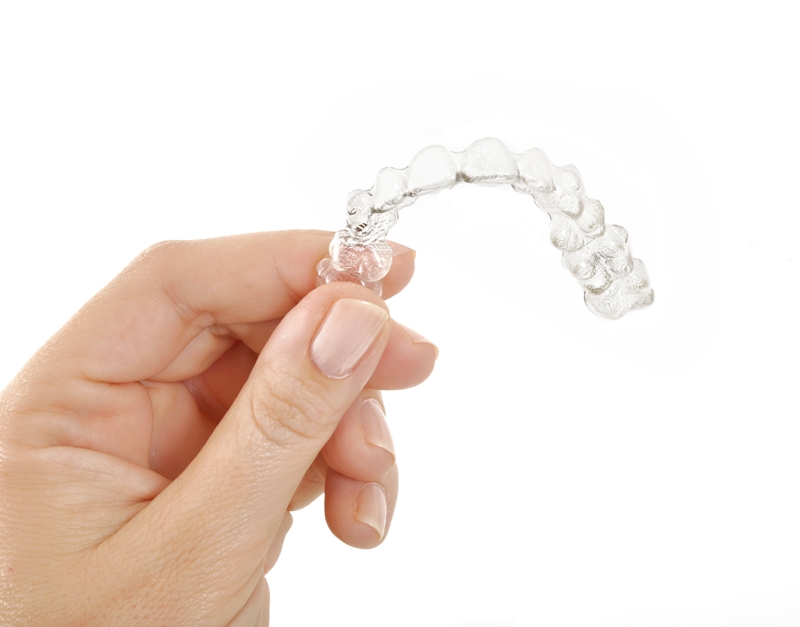Sometimes, letting go is the best option. If a tooth is causing you significant pain, or may cause you pain down the road, your dentist may recommend extracting, or removing, a tooth. While far from ideal, extracting a tooth may be the most prudent decision for your overall oral health. There are, however, basic oral hygiene steps you can take to cut down on culprits such as gum disease or infection and potentially save your teeth.
Reasons a tooth might be extracted
A tooth may need to be removed for a variety of reasons, ranging from illness, to accident, to more standard procedures like wisdom teeth removal. Some of the most common issues that may lead to tooth extraction include:
- A broken tooth: Leaving a chipped or broken tooth untreated can lead to all sorts of problems, including intense pain when exposed to hot or cold food. While other treatments, such as veneers, a dental implant or a root canal, can usually be used to save the tooth, in some cases, extraction is the best option.
- Deep tooth infection: A tooth can become infected if its inner dentin is exposed. If left unchecked, dental infection can spread into the face and neck, and may even be fatal in extreme cases.
- Gum disease: Gum disease is caused by the buildup of plaque between teeth and near the gum. If left untreated, mild gum disease can become periodontitis, which can weaken the gum and destroy bone.
- Crowded teeth: This means there isn’t enough room in your mouth for all of your teeth to grow in. If left untreated, teeth crowding may result in serious jaw pain and an increased risk for gum disease. In many cases, especially for younger patients, teeth crowding can be corrected through an orthodontic intervention, such as braces or a retainer, rather than tooth extraction.
- Wisdom teeth growth: Wisdom teeth are typically the very last adult teeth to erupt, often in a person’s teenage years or early 20s. These teeth may grow in at an angle that either impacts other teeth near them or damage the cheek and gum. Both could result in severe mouth pain.
In most cases, the extraction procedure itself is relatively quick. A dentist will typically apply localised anesthesia before loosening and then removing the problem tooth.

Recovering from tooth extraction
Following a tooth extraction procedure, your dentists will probably ask you to take certain precautions to ensure your socket stays clean and to mitigate pain. These will typically include sticking with soft foods in the days or weeks following extraction and trying your best to chew on the unaffected side of your mouth. In some cases, your dentists might give you a prescription to pain relief medication to reduce inflammation, or recommend an over-the-counter treatment, as needed.
If you experience ongoing severe pain, bleeding or a fever in the first one or two weeks following the extraction of a tooth, contact your dentist for a follow up appointment.
How to save your teeth
You can prevent tooth extraction that results from gum disease or tooth infection by looking for the warning signs of these illnesses and staying on top of your daily oral hygiene. That includes brushing twice a day and flossing. Teeth crowding, meanwhile, can be eased through orthodontia such as brace, Invisalign or a retainer. Be sure to follow all instruction from your dentist and orthodontists to properly clean and use your recommended orthodontia and you be able to mitigate the need for any of your teeth to removed.
In some cases, tooth extraction simply can’t be prevented, no matter your oral health practises. There isn’t really anything you can do to prevent wisdom teeth from coming in, for example. Wisdom teeth removal is an extremely standard procedure, and it’s common for anywhere from just one to all four wisdom teeth to be extracted. Whatever your reason for needing a tooth to be extracted, it’s important that you understand that your dentist has your overall oral health at heart.
Tooth extraction can be anything from a routine procedure to a serious intervention. Whatever your needs, the team at City Dentists is here to help! City Dentists takes the convenience of its patients to heart, with its central location by the Wellington train station, professional staff and modern offices. Our experienced dentists and dental hygienists can determine if a tooth needs to be removed, or if not, what steps you can take to save it.
If you want to get your teeth looking better than ever, City Dentists can help. Contact us today to schedule an appointment.